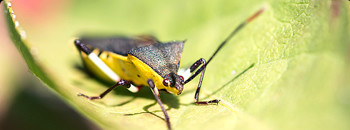Well-respected radio host Diane Rehm tackled the issue of pesticide resistance on her Feb. 3 program, inviting RISE president Aaron Hobbs to participate in the panel discussion. “Environmental Outlook: The Race Against Pests and Weeds,” featured multiple debate-worthy topics related to the subject matter, discussed by the following panel members:
- Aaron Hobbs (@AhobbsRISE), president of RISE
- Les Glasgow, herbicide technical product lead, Syngenta
- Erik Olson, director of the health program for the Natural Resources Defense Council
- Andy Dyer, professor of biology at the University of South Carolina; author of “Chasing the Red Queen: The Evolutionary Race Between Agricultural Pests and Poisons.”
Rehm opened the show by discussing the challenges of weed resistance management and whether there is a need for new solutions. This set the stage for an extensive conversation on pest control and pesticide use, including:
- Pesticides’ role as a solution to pest problems that should be used in combination with other pest control tools – essentially, an integrated pest management (IPM) approach. Hobbs pointed out the importance of education, proper use and continued evolution of pesticide technology.
- The advancement of pesticide technology, which results in more targeted products. Hobbs said, “The innovation cycle brings a product to market that is more targeted to be more specific to the pest problem we’re trying to solve, as well as softer and friendlier to those beneficials in the field.”
- The role of invasive species in habitat challenges. Invasives compete with plants, like milkweed, that offer butterfly habitat.
- The length of time (10 years) it takes for the Environmental Protection Agency to review new pesticide products to ensure they can be used safely.
While multiple viewpoints were represented and debated throughout the show, Hobbs found one perspective with which he thought everyone could agree.
“Whenever you’re approaching a pest problem, whether it’s a weed or an insect, you have to take an integrated approach. I think that’s something we can all agree is the way to go,” he said. “You have to take that thoughtful, integrated approach to address that problem. Fortunately we have those solutions that help us deal with those problems now.”
Listen to the complete show on The Diane Rehm Show website or track Aaron’s online conversation at www.twitter.com/DebugTheMyths.

